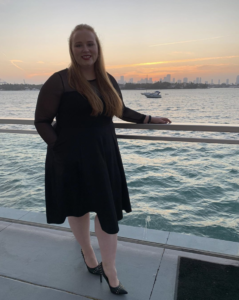Covid-19 has taught me to be more conscious of how I spend my time, money, and energy.
“The Curve is Flattening,” “What Our New Normal May Look Like,” “Get People Back to Work!”
I have been seeing headlines like these all week and it freaks me out. I’m lucky, I live in a state that has done a great job of staying home, we’ve kept our numbers low and our communities have been coming together to support each other during the lockdown. It really hasn’t been that bad in Minnesota. But I won’t be running out of my house any time soon to gather in public venues and I am afraid that too many people across the country will.
Like many others, I sense a huge push to make us believe that the worst is over. Our businesses, and politicians, will all want to restart the economy, get us out of our houses and return to “normal.” We will be told that this wasn’t that bad (reminder: as of today 31,000 people have died in the US in two short months), that we need to rebuild the economy, or that we deserve to go back to normal after being stuck at home. The desire to feel normal again will be more attractive than ever and big business and politicians will play on that. But I don’t think we should buy into it. Here’s why:
Going Back to Normal Means Going Back to Being Apathetic
For many of us the constant onslaught of things to do throughout the day is the perfect excuse to turn away from what’s going around us. Covid-19 updates, politics, and thinking about the sacrifices of our essential workers will drop off our to-do list until we have no idea what’s going on. We will continue to distance the virus from ourselves and downplay the impact it has on our lives. (it’s really only bad in NY, it’s not like the plague, I’m safe because people around me seem safe). It will be easy to go back to our habits and forget what we’ve learned.
We Will Never Have Our Old Lives Back
The last month has had an enormous impact on the way we live our lives. New ways of working will stick around. Many people will still be hesitant to go back to crowded venues. Financial hardships will continue. Things won’t really be normal for a long time, and when we find what “normal” is, it’s not going to be like the summer of 2019.
Bad Things Will Still Be Happening
Despite the best efforts to convince you that this is all over, or that it’s safe to go back out this summer, people will still be dying. Vaccines will not yet be approved and the chance of another area blowing up will still be a significant possibility. As we reopen the economy, many employees will be forced back into the public. Those that don’t have insurance or sick leave will still avoid going to get tested and continue to show up for work. The virus will swirl around in our communities for months to come.
Instead of buying into the messages that this is over and it’s safe to resume life as usual… Let’s take this moment to rethink how we want our post-coronavirus lockdown interactions to look like.
Some changes I would like to see/make as a result of the pandemic:
🔸Respect and care for the elderly, immunocompromised, and our fellow neighbors.
🔸Increased respect and acknowledgment of our essential workers (grocers, utility personnel, maintenance workers, delivery drivers, mechanics, gas station attendants, daycare providers).
🔸Renewed focus on improving our education and healthcare systems.
🔸An opportunity to rewrite what normal means, and to make conscious decisions on how we want to re-enter and participate in society.
I encourage you to think critically about all that has happened, and what the next few months might look like for you. What do you want to add back into your life? Which activities added the most value to your daily life? What has this whole experience shown us about class, socio-economic gaps, and our health care system? How do we take this opportunity to not only fix work but society?
I think that’s enough food for thought for this weekend.
Stay safe and healthy ❤️
 Devon McGrath is an academic researcher turned podcast producer, content creator, and Director of Operations for Punk Rock HR. When she’s not working, you can find her roaming State Parks, hunting for a new great album to listen to, or sitting on the patio at a local brewery.
Devon McGrath is an academic researcher turned podcast producer, content creator, and Director of Operations for Punk Rock HR. When she’s not working, you can find her roaming State Parks, hunting for a new great album to listen to, or sitting on the patio at a local brewery.
You must be logged in to post a comment.